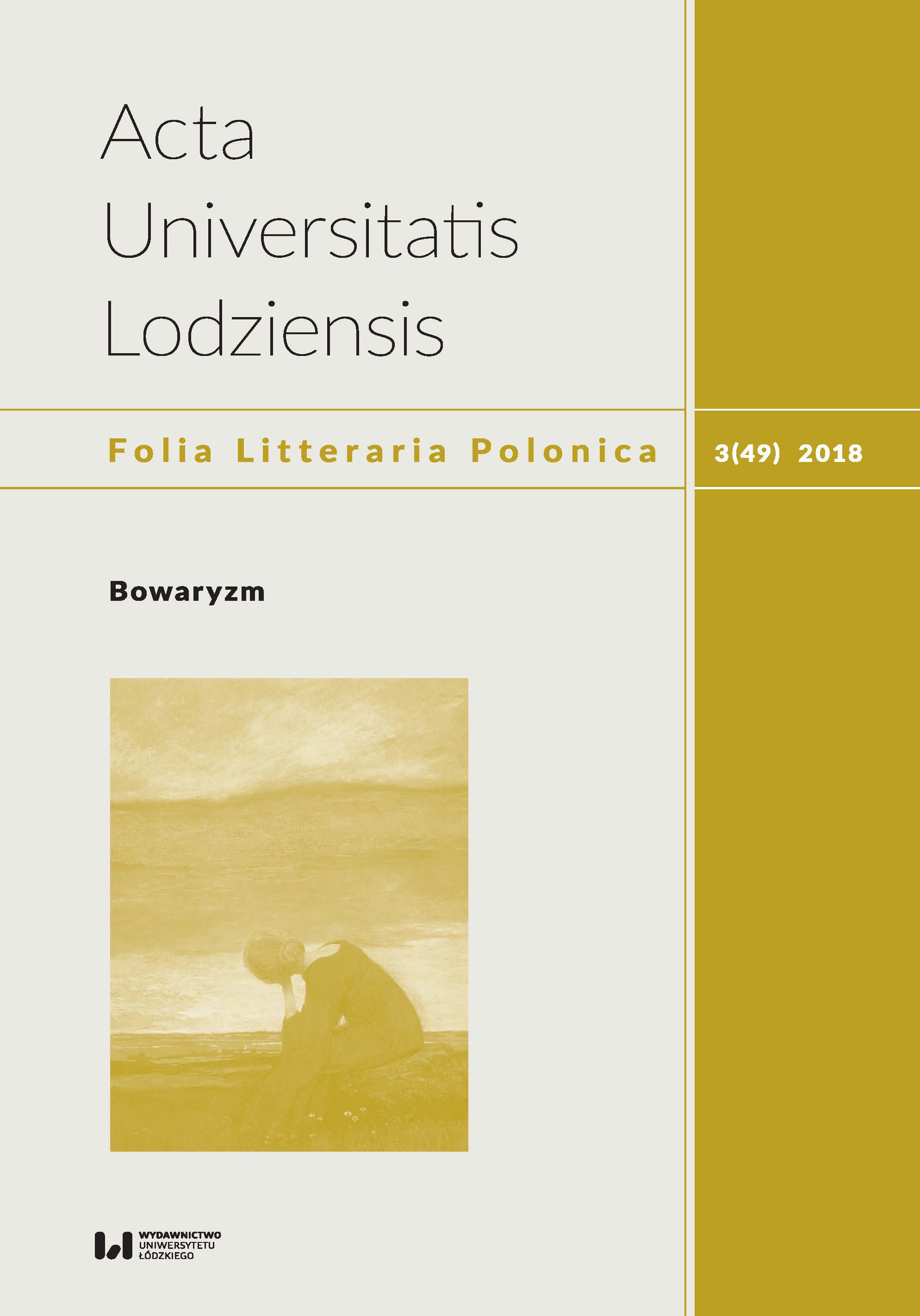Cécile – starsza siostra Effi Briest
DOI:
https://doi.org/10.18778/1505-9057.49.12Słowa kluczowe:
Theodor Fontane, Berlin novels, Cécile, Gustave Flaubert, Madame Bovary, bovarysmeAbstrakt
This paper deals with Theodor Fontane’s novel Cecile published in 1886. This novel is the first part of the unofficial trilogy of the so-called Berlin novels, which also include Irrungen, Wirrungen (Trials and Tribulations, On Tangled Paths) and Stine. Among these three novels, Cecile is the only one which has not been translated into Polish. In each of these novels, the central motif is misalliance, which in two cases (Cecile and Stine) leads to a tragic end. The motif of a duel, in turn, in which the husband kills the lover or the admirer of the heroine links Cecile to Effi Briest – the most famous of Theodor Fontane’s works. This article attempts to interpret the novel in the context of the similarities between Cecile and Emma Bovary, the protagonist of the masterpiece by Gustave Flaubert and from the perspective of bovarysme –a term coined by Jules de Gaultier. In the analysis, what is important is not only the characterization of Cecile as a character but also the discussion of the role of a letter in the plot of the novel, a letter being a motif used by Fontane in an interesting and surprising way.
Pobrania
Bibliografia
Bontrup Hiltrud, „… auch nur ein Bild”. Krankheit und Tod in ausgewählten Texten Theodor Fontanes, Argument-Verlag, Hamburg 2000.
Google Scholar
Böschenstein Renate, Verborgene Facetten. Studien zu Fontane, Verlag Königshausen & Neumann, Würzburg 2006 (Fontaneana, Bd. 6).
Google Scholar
Flaubert Gustave, Pani Bovary, przekł. R. Engelking, wyd. 2 zm., Wydawnictwo Sic!, Warszawa 2014.
Google Scholar
Fontane Theodor, Cécile, w: Theodor Fontane, Sämtliche Werke, hrsg. von E. Groß, K. Schreinert, R. Bachmann, Ch. Jolles, J. Neuendorff-Fürstenau, Nymphenburger Verlagshandlung, München 1959–1975 [»Nymphenburger Fontane-Ausgabe«], IV [L’Adultera, Cecile, Die Poggenpuhls, 1959], s. 127–284.
Google Scholar
Gaultier Jules de, Le Bovarysme. La psychologie dans l’oeuvre de Flaubert, Librairie Léopold Cerf, Paris 1892.
Google Scholar
Nottinger Isabel, Fontanes Fin de Siècle. Motive der Dekadenz in „L’Adultera“, „Cécile“ und „Der Stechlin“, Verlag Königshausen & Neumann, Würzburg 2003.
Google Scholar
Nürnberger Helmuth, Theodor Fontane in Selbstzeugnissen und Bilddokumenten, Rowohlt Taschenbuch Verlag, Reinbek bei Hamburg 1968.
Google Scholar
Pacholski Jan, Theodor Fontane. Z apteki na Parnas, Quaestio, Wrocław 2014 (Wydanie specjalne „Orbis Linguarum”, t. 108).
Google Scholar
Zuberbühler Rolf, „Ja, Luise, die Kreatur“. Zur Bedeutung der Neufundländer in Fontanes Romanen, Max Niemeyer Verlag, Tübingen 1991 (Untersuchungen zur deutschen Literaturgeschichte, Bd. 60).
Google Scholar
Pobrania
Opublikowane
Jak cytować
Numer
Dział
Licencja

Utwór dostępny jest na licencji Creative Commons Uznanie autorstwa – Użycie niekomercyjne – Bez utworów zależnych 4.0 Międzynarodowe.











